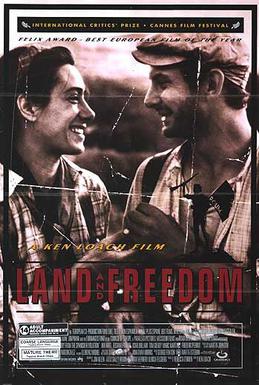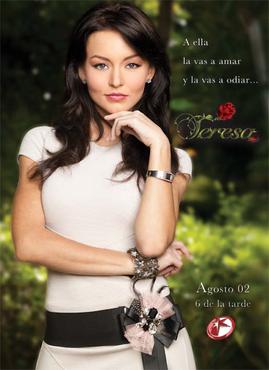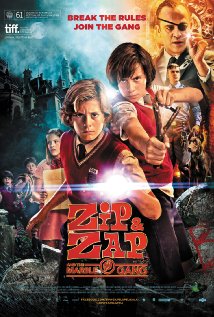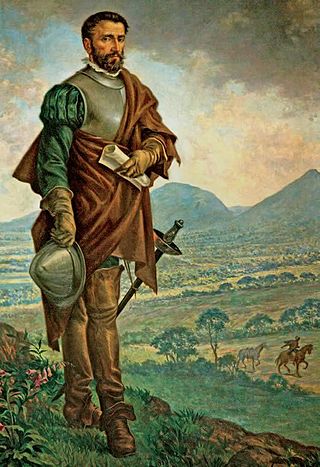
The Spanish Revolution was a workers' social revolution that began at the outbreak of the Spanish Civil War in 1936 and for two to three years resulted in the widespread implementation of anarchist and, more broadly, libertarian socialist organizational principles throughout various portions of the country, primarily Catalonia, Aragon, Andalusia, and parts of the Valencian Community. Much of the economy of Spain was put under worker control; in anarchist strongholds like Catalonia, the figure was as high as 75%. Factories were run through worker committees, and agrarian areas became collectivized and run as libertarian socialist communes. Many small businesses, such as hotels, barber shops, and restaurants, were also collectivized and managed by their workers.

Juan Nepomuceno Carlos Pérez Rulfo Vizcaíno, best known as Juan Rulfo, was a Mexican writer, screenwriter, and photographer. He is best known for two literary works, the 1955 novel Pedro Páramo, and the collection of short stories El Llano en llamas (1953). This collection includes the popular tale "¡Diles que no me maten!".

Esperanza Aguirre y Gil de Biedma is a Spanish politician. As member of the People's Party (PP), she served as President of the Senate between 1999 and 2002, as President of the Community of Madrid between 2003 and 2012 and as Minister of Education and Culture (1996–1999). She also chaired the People's Party of the Community of Madrid between 2004 and 2016.
Esperanza is the Spanish word for hope, and may refer to:

The Popular Liberation Army is a Colombian anti-revisionist Marxist–Leninist guerrilla group created in 1967. Most of its former members demobilized in 1991, forming the Esperanza, Paz y Libertad party, but a dissident faction, formerly led by Megateo, known as "Los Pelusos", continue operating. On June 22, 1994, Francisco Caraballo, First Secretary of the Communist Party of Colombia (M-L) and Commander in Chief of the People's Liberation Army, was arrested along with his wife, son and several other EPL members. Víctor Ramon Navarro Cervano, alias "Megateo," the leader of the last faction of the Popular Liberation Army (EPL), was killed in a military and police operation in Norte de Santander department in 2015. On December 15, 2016, Megateo's successor Guillermo León Aguirre, alias “David León,” was captured in Medellín. 40 days after the capture of David León, the body of his successor Jade Navarro Barbaso, alias “Caracho,” was still not found after disappearing.

Land and Freedom is a 1995 film directed by Ken Loach and written by Jim Allen. The film narrates the story of David Carr, an unemployed worker and member of the Communist Party of Great Britain, who decides to fight in the Spanish Civil War for the republicans, a coalition of Socialists, Communists and Anarchists against a nationalist coup d'etat. The film won the FIPRESCI International Critics Prize and the Prize of the Ecumenical Jury at the 1995 Cannes Film Festival. The film was also nominated for the Palme d'Or at Cannes.
La Esperanza is the capital city and a municipality of the same name of the department of Intibucá, Honduras. La Esperanza is famous for having the coolest climate in Honduras. It is considered the heart of the Ruta Lenca, a region of Lenca ethnic influence that spans Honduras from Santa Rosa de Copan to Choluteca. Sites on the Lenca Trail have been designated by the government and United Nations development in order to encourage more cultural tourism, and help create new markets for the traditional crafts, such as pottery, practiced by the Lenca, in order to preserve their culture.

Teresa is a Mexican telenovela produced by José Alberto Castro for Televisa. It is a remake of the Mexican telenovela of the same name produced in 1959.

The Orphanage is a 2007 gothic supernatural horror film directed by J. A. Bayona in his directorial full-length debut. The film stars Belén Rueda as Laura, Fernando Cayo as her husband, Carlos, and Roger Príncep as their adopted son Simón. The plot centers on Laura, who returns to her childhood home, an orphanage. Laura plans to turn the house into a home for disabled children, but after an argument with Simón, he goes missing. The film is an international co-production film between Spain and Mexico.

Like Water for Chocolate is a 1992 Mexican romantic drama film in the style of magical realism based on the debut novel of the same name published in 1989 by Mexican novelist Laura Esquivel. It earned ten Ariel Awards including the Best Picture and was nominated for a Golden Globe Award for Best Foreign Language Film. The film became the highest-grossing foreign-language film ever released in the United States at the time. The film was selected as the Mexican entry for the Best Foreign Language Film at the 65th Academy Awards, but was not accepted as a nominee.

Esperanza del corazón is a Spanish-language Mexican telenovela produced by Luis de Llano Macedo for Televisa. It aired on Canal de las Estrellas from July 18, 2011 to February 3, 2012. It is a merger of Aguetas de Color de Rosa and Confidente de Secundaria, produced by Luis de Llano Macedo in 1994 and 1996, respectively.

Solamente vos is a 2013 Argentine Romantic comedy starring Adrián Suar and Natalia Oreiro, produced by Pol-ka that began to be aired on 21 January 2013, and ended 20 January 2014 from Monday to Thursday at 9:30 pm on the screen of Canal 13 as of 28 June, it also began airing on Fridays at 9:30 pm.
Feminism in Mexico is the philosophy and activity aimed at creating, defining, and protecting political, economic, cultural, and social equality in women's rights and opportunities for Mexican women. Rooted in liberal thought, the term feminism came into use in late nineteenth-century Mexico and in common parlance among elites in the early twentieth century. The history of feminism in Mexico can be divided chronologically into a number of periods with issues. For the conquest and colonial eras, some figures have been re-evaluated in the modern era and can be considered part of the history of feminism in Mexico. At the time of independence in the early nineteenth century, there were demands that women be defined as citizens. The late nineteenth century saw the explicit development of feminism as an ideology. Liberalism advocated secular education for both girls and boys as part of a modernizing project, and women entered the workforce as teachers. Those women were at the forefront of feminism, forming groups that critiqued existing treatment of women in the realms of legal status, access to education, and economic and political power. More scholarly attention is focused on the Revolutionary period (1915–1925), although women's citizenship and legal equality were not explicitly issues for which the revolution was fought. The Second Wave and the post-1990 period have also received considerable scholarly attention. Feminism has advocated for the equality of men and women, but middle-class women took the lead in the formation of feminist groups, the founding of journals to disseminate feminist thought, and other forms of activism. Working-class women in the modern era could advocate within their unions or political parties. The participants in the Mexico 68 clashes who went on to form that generation's feminist movement were predominantly students and educators. The advisers who established themselves within the unions after the 1985 earthquakes were educated women who understood the legal and political aspects of organized labor. What they realized was that to form a sustained movement and attract working-class women to what was a largely middle-class movement, they needed to utilize workers' expertise and knowledge of their jobs to meld a practical, working system. In the 1990s, women's rights in indigenous communities became an issue, particularly in the Zapatista uprising in Chiapas. Reproductive rights remain an ongoing issue, particularly since 1991, when the Catholic Church in Mexico was no longer constitutionally restricted from being involved in politics.

Zip & Zap and the Marble Gang is a 2013 Spanish adventure film directed by Oskar Santos. It is based on the comic book series Zipi y Zape, created by José Escobar Saliente.

I Don't Trust Men Anymore is a Mexican telenovela produced by Giselle González for Televisa. It is based on Yo no creo en los hombres (1991), produced in México. Critically acclaimed, it was the most awarded novela of 2014 and is widely considered to be one of the best telenovelas of the decade.
El secreto de Puente Viejo is a Spanish soap opera produced by Boomerang TV that originally aired from 23 February 2011 to 20 May 2020 on Antena 3.

Sueño de amor is a Mexican telenovela produced by Juan Osorio for Televisa. It is also broadcast in Univision in the United States.

The Spanish conquest of the Muisca took place from 1537 to 1540. The Muisca were the inhabitants of the central Andean highlands of Colombia before the arrival of the Spanish conquistadors. They were organised in a loose confederation of different rulers; the psihipqua of Muyquytá, with his headquarters in Funza, the hoa of Hunza, the iraca of the sacred City of the Sun Sugamuxi, the Tundama of Tundama, and several other independent caciques. The most important rulers at the time of the conquest were psihipqua Tisquesusa, hoa Eucaneme, iraca Sugamuxi and Tundama in the northernmost portion of their territories. The Muisca were organised in small communities of circular enclosures, with a central square where the bohío of the cacique was located. They were called "Salt People" because of their extraction of salt in various locations throughout their territories, mainly in Zipaquirá, Nemocón, and Tausa. For the main part self-sufficient in their well-organised economy, the Muisca traded with the European conquistadors valuable products as gold, tumbaga, and emeralds with their neighbouring indigenous groups. In the Tenza Valley, to the east of the Altiplano Cundiboyacense where the majority of the Muisca lived, they extracted emeralds in Chivor and Somondoco. The economy of the Muisca was rooted in their agriculture with main products maize, yuca, potatoes, and various other cultivations elaborated on elevated fields. Agriculture had started around 3000 BCE on the Altiplano, following the preceramic Herrera Period and a long epoch of hunter-gatherers since the late Pleistocene. The earliest archaeological evidence of inhabitation in Colombia, and one of the oldest in South America, has been found in El Abra, dating to around 12,500 years BP.

Valeria is a Spanish comedy-drama streaming television series developed by María López Castaño for Netflix, based on the novel series En los zapatos de Valeria by Elísabet Benavent. It stars Diana Gómez, Silma López, Paula Malia, Teresa Riott, Maxi Iglesias and Ibrahim Al Shami. The first season premiered on 8 May 2020. On 12 June 2020, the series was renewed for a second season. The second season was released on 13 August 2021. In October 2021, Netflix reported that Valeria was renewed for a third season which was released on 2 June 2023. In March 2024, the series was renewed for a fourth and final season.
The Union of the Entertainment Industry Films was a Catalan film producer and distributor active during the Second Spanish Republic, which produced films and documentaries on anarchist and social themes.














